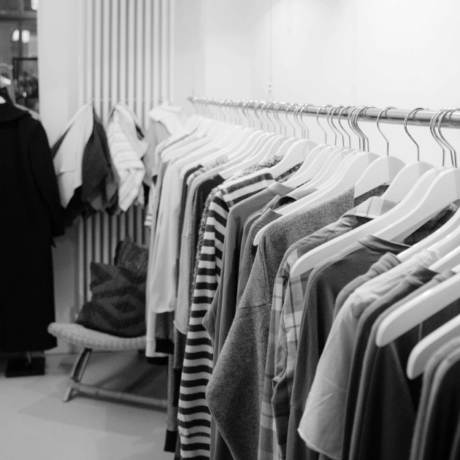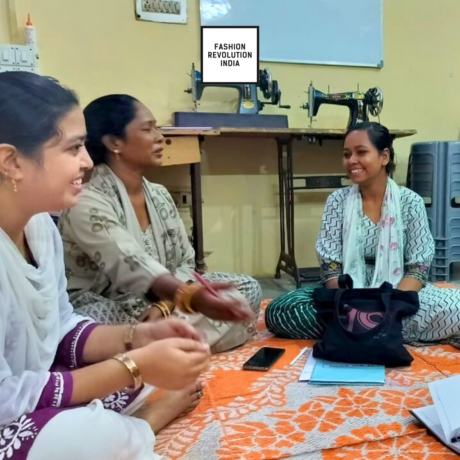The Rise of Generation Conscious
In a time of national crisis there is always radical change.
The Coronavirus pandemic begs an important question: why would we want to fully return to the status-quo if our needs can be met with our well-being and environmental sustainability in mind? This once-in-a-generation chance to build a better future will propel the concept of ‘conscious living’ to the top of our agenda, with Millennials and Generation Z driving the rally.
Enter “Generation Conscious”: The growing number of individuals proving we can exist beyond long haul flights, online shopping and bricks and mortar retail. They’ll define the new normal from what our world has recently experienced.
Generation Conscious:
It’s long been known that the Millennial generation are willing to pay more for sustainable goods and according to First Insight, 62 percent of Generation Z (who are soon to enter the workforce) prefer buying from sustainable brands, on a par with Millennials. Both generations have grown up with an excess of (often cheap) products and the “wear-it-once” culture has perpetuated the fast fashion model. Match this with on-demand, trend-led manufacturing processes(often at the expense of impossibly low labour costs) and we’ve ended up with an abundance of waste and unsold stock ending in landfill. It’s no surprise that Generation Conscious are pushing back, coveting the idea of minimalism – not simply to tidy up their bedrooms, but to fundamentally change the way they live their lives.
Conscious Consumption:
With so many avenues for sustainability resonating with Generation Conscious, circular fashion models are booming. The creative ecosystem of DIY fashion and re-sale serves them well, as a generation that prizes individuality, ethical concerns, and “access, over ownership” when it comes to clothing. The below movements align with the conscious consumers’ interest in reducing waste, recycling and re-using what we already have:
1) Re-sale: Millennials and Generation Z are leading the rise of resale fashion marketplaces. Companies such as Depop and Vestiaire Collective are disrupting fashion ownership and capitalising on the the re-sale market which is set to be larger than the fast fashion industry within 10 years.
2) DIY Fashion: With Generation Conscious under lockdown, DIY fashion has taken off – they’re upcycling materials to create their own clothes. Leading fashion brands such as Alexander McQueen and Ganni have also pivoted their usual marketing in favour of Instagram tutorials or challenges, aimed at inspiring consumers to embroider and draw.
3) Peer-to-Peer: Sellers using peer-to-peer marketplaces exist somewhere between e-commerce and social media. Betting that they’ll trust their friends’ recommendations more than the outdated “#ad” from influencers, they can visually curate their profiles, follow each other and show off their crafts.
The impact of Coronavirus on consumption:
The concept of owning less and wasting less has been propelled by the current pandemic. With physical stores closed and online deliveries delayed as retailers respond to COVID-19, Generation Conscious are adapting and actively choosing to live with less. Postvirus, they’ll seek out brands that they align with morally more than ever before, with an emphasis placed on conscious products.
And it’s not just about what they wear. Wellbeing and self-care industries will focus on more natural and organic products. From fresh produce to clothing, ‘clean’ and non-toxic materials will drive demand as health continues to be a top priority. This new consciousness will question how we travel too. Beyond the growing pressure to fly less (cue Google Experiences: this is the moment for virtual reality travel), those who can afford it will increasingly “offset” the carbon footprint of their flights by contributing to schemes that either replant forests or invest in energy-efficient products or renewable technology. They’ll opt for lower carbon aircrafts and flight paths, recently introduced as an option in the Skyscanner customer journey. When life commences post-COVID we must ask ourselves: what does the conscious consumer, the brand, the employee of tomorrow look like? Generation Conscious are breaking old habits and finding new, more innovative ways of living. With this profound awakening, what may have begun with the Millennial generation will become a powerful and lasting inter-generational change. Generation Conscious aren’t recanting capitalism, but striving to make informed choices.
***
Victoria Prew is the CEO & cofounder of HURR, the UK’s first peer-to-peer wardrobe rental platform.








